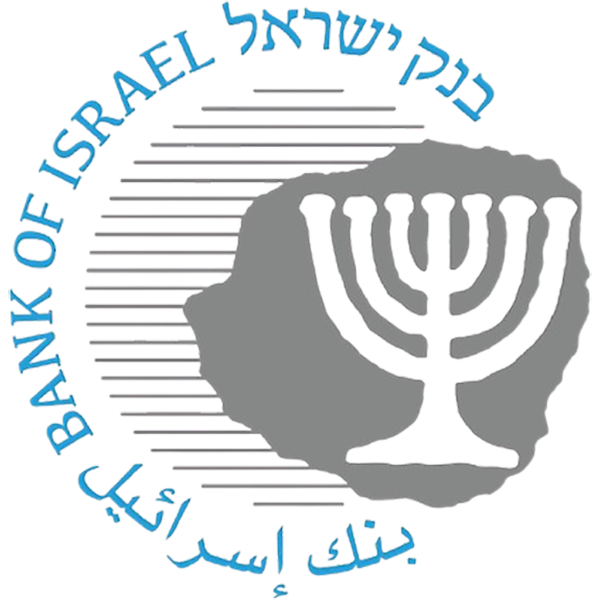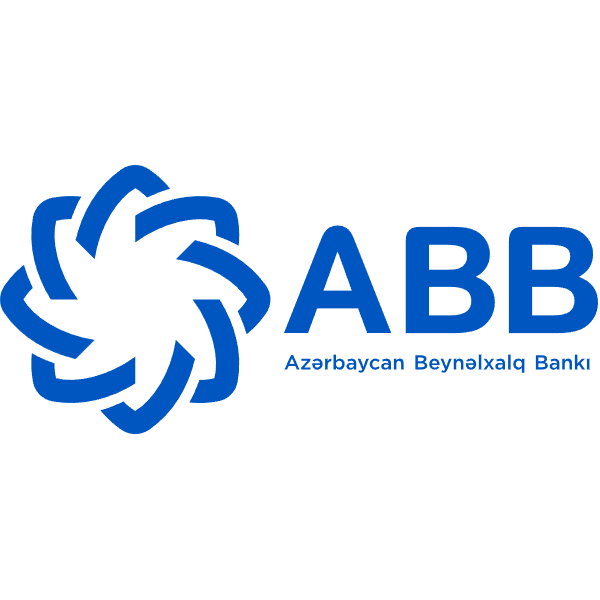البنك المركزي الموريتاني (Banque Centrale de Mauritanie ، أو BCM اختصارًا) هو البنك المركزي الوطني لموريتانيا. وهو مسؤول عن صياغة وتنفيذ السياسة النقدية للبلاد ، والإشراف على النظام المالي ، وإدارة احتياطيات البلاد من النقد الأجنبي. يلعب البنك المركزي الموريتاني دورًا مركزيًا في الحفاظ على الاستقرار النقدي ، وتعزيز التنمية المالية ، وضمان أمن نظام الدفع.
فيما يلي بعض المسؤوليات والخصائص الرئيسية للبنك المركزي الموريتاني:
- صياغة السياسة النقدية: البنك المركزي الموريتاني مسؤول عن صياغة وتنفيذ السياسة النقدية من أجل الحفاظ على استقرار الأسعار ، وتعزيز النمو الاقتصادي والتوظيف. يتحكم البنك المركزي في عرض النقود وشروط الائتمان من خلال تعديل الأدوات مثل أسعار الفائدة ومتطلبات الاحتياطي وعمليات السوق المفتوحة.
- التنظيم المالي: يشرف البنك المركزي على مجموعات المؤسسات المالية في موريتانيا ، مما يضمن تشغيلها السليم والامتثال للقوانين واللوائح ذات الصلة. ويشمل ذلك البنوك وشركات التأمين وشركات الأوراق المالية ومشغلي أنظمة الدفع ، من بين آخرين.
- إدارة الصرف الأجنبي: يدير البنك المركزي الموريتاني احتياطيات النقد الأجنبي في البلاد وهو مسؤول عن تنظيم سوق الصرف الأجنبي ، فضلاً عن تنفيذ ضوابط الصرف الأجنبي. كما أنها مسؤولة عن إصدار وتداول العملة الوطنية ، الدرهم الموريتاني (MRO).
- أنظمة الدفع والتسوية: البنك المركزي مسؤول عن صيانة أنظمة الدفع والإشراف عليها ، وضمان المعاملات المالية السلسة والآمنة. ويشمل ذلك التعامل مع المدفوعات الإلكترونية ومقاصة الشيكات والتحويلات بين البنوك ، من بين أمور أخرى.
- الاستقرار المالي: يراقب البنك المركزي الموريتاني استقرار النظام المالي ويتخذ التدابير اللازمة لمنع الأزمات المالية. كما يشارك في تنسيق سياسات الاقتصاد الكلي لدعم التنمية المستدامة طويلة الأجل للاقتصاد.
- التعاون الدولي: يشارك البنك المركزي الموريتاني ، بالتعاون مع البنوك المركزية في البلدان الأخرى ومجموعة المؤسسات المالية الدولية ، في الشؤون المالية الدولية ويعزز تسهيل المدفوعات العالمية والمعاملات المالية.
- البحث والتحليل: يجري البنك المركزي أبحاثًا وتحليلات للماريكات الاقتصادية والمالية لتوفير أساس لصياغة السياسات. ينشر البنك المركزي الموريتاني تقارير وإحصاءات اقتصادية توفر الشفافية حول حالة الاقتصاد الموريتاني.
يلتزم البنك المركزي الموريتاني في قيامه بواجباته بتعزيز نظام مالي مستقر وسليم ومتطور يدعم نمو وازدهار الاقتصاد الموريتاني. من خلال صياغة السياسات الفعالة والإشراف عليها ، يلعب البنك المركزي دورًا رئيسيًا في الحفاظ على الاستقرار المالي للبلاد وتعزيز التنمية المستدامة.
كما يلتزم البنك المركزي الموريتاني (BCM) في أداء واجباته بالمجالات التالية:
- مكافحة غسل الأموال وتمويل الإرهاب: نظرًا للاهتمام العالمي بمكافحة أنشطة غسل الأموال وتمويل الإرهاب ، يتولى البنك المركزي الموريتاني أيضًا مسؤولية الإشراف وإنفاذ القوانين والتدابير التنظيمية ذات الصلة. ويشمل ذلك إنشاء والحفاظ على إطار تنظيمي فعال لضمان امتثال مجموعات المؤسسات المالية للمعايير الدولية لمكافحة غسل الأموال وتمويل الإرهاب.
- الشمول المالي: يركز البنك المركزي أيضًا على تحسين الشمول المالي ، أي ضمان حصول جميع الطبقات الاقتصادية ، وخاصة أولئك الذين يعيشون في المناطق الفقيرة والنائية ، على الخدمات المالية. تحقيقا لهذه الغاية ، يشجع البنك المركزي الموريتاني على تطوير مجموعات المؤسسات المالية غير المصرفية ، مثل مؤسسات التمويل الأصغر وشركات التأمين ، وكذلك يشجع مجموعات المؤسسات المالية على تقديم المزيد من المنتجات والخدمات المالية المناسبة لعامة السكان.
- تنمية المواهب والتجديد التكنولوجي: من أجل الحفاظ على كفاءته المهنية وقدرته التنافسية ، يولي البنك المركزي الموريتاني أهمية للتدريب والتطوير المهني لموظفيه. في الوقت نفسه ، يلتزم البنك المركزي أيضًا بإدخال وتحديث التكنولوجيا المالية من أجل تحسين كفاءة العمل وتقديم خدمات مالية عالية الجودة.
- الإطار القانوني والتنظيمي: البنك المركزي الموريتاني مسؤول عن صياغة وتحديث وإنفاذ الإطار القانوني والتنظيمي المالي. وهذا يشمل ضمان أن التدابير القانونية والتنظيمية تتماشى مع المعايير الدولية ، مع مراعاة الظروف الوطنية لموريتانيا واحتياجات التنمية الاقتصادية.
- التعاون والتبادل الدولي: يشارك البنك المركزي الموريتاني بنشاط في المنظمات والمنتديات الدولية ، مثل الاتحاد النقدي لغرب إفريقيا (UEMOA) وصندوق النقد الدولي (IMF) والبنك الدولي ، من بين أمور أخرى ، لتعزيز التعاون الدولي وتبادل الخبرات وتعزيز مكانتها ونفوذها في الساحة المالية الدولية.
من خلال المسؤوليات والجهود المذكورة أعلاه ، يلعب البنك المركزي الموريتاني دورًا مهمًا في الحفاظ على الاستقرار المالي للبلاد ، وتعزيز التنمية الاقتصادية وتحسين معيشة الناس. مع التطور المستمر للاقتصاد الموريتاني والانفتاح على العالم الخارجي ، سيستمر البنك المركزي في مواجهة تحديات وفرص جديدة ، وسيزداد موقعه ودوره أهمية.
بالإضافة إلى ذلك ، يواصل البنك المركزي الموريتاني (BCM) لعب دوره في المجالات التالية:
- استراتيجية التنمية الاقتصادية: يشارك البنك المركزي الموريتاني بنشاط في صياغة الاستراتيجية الوطنية للتنمية الاقتصادية ، مع شراكات سياسية ، ودعم خطط التنمية في البلاد من خلال السياسة النقدية. وهذا يشمل تشجيع الاستثمار وخلق فرص العمل والحد من الفقر.
- الابتكار المالي: استجابة لتحديات التنمية الاقتصادية والاجتماعية ، يشجع البنك المركزي الموريتاني الابتكار المالي ، مثل تطوير الأموال عبر الهاتف المحمول والخدمات المالية الرقمية الأخرى ، لتحسين الإدماج المالي والملاءمة.
- إدارة المخاطر: يشرف البنك المركزي وينظم ممارسات إدارة المخاطر لمجموعات المؤسسات المالية ، مما يضمن قدرتها على تحديد وتقييم ومراقبة ومراقبة المخاطر المالية المختلفة بشكل فعال ، مثل مخاطر الائتمان ومخاطر السوق والمخاطر التشغيلية ، إلخ.
- الإحصائيات والإفصاح عن المعلومات: البنك المركزي الموريتاني مسؤول عن جمع وتحليل ونشر البيانات المالية والاقتصادية لدعم صياغة السياسات والرقابة التنظيمية والمعلومات العامة. تشمل هذه الإحصاءات معدلات التضخم وأسعار الصرف ونمو الائتمان واحتياطيات النقد الأجنبي ، من بين أمور أخرى.
- القانونية والامتثال: يضمن البنك المركزي امتثال مجموعات المؤسسات المالية للقوانين واللوائح ذات الصلة ، بما في ذلك لوائح مكافحة غسل الأموال وتمويل الإرهاب. كما أنها مسؤولة عن التعامل مع قضايا الامتثال واتخاذ التدابير التنظيمية ضد مجموعات المؤسسات المالية التي تنتهك اللوائح.
- البحث والتحليل: يواصل البنك المركزي الموريتاني إجراء تحليل بحثي للممارسات الاقتصادية والمالية من أجل توقع المخاطر التي قد تؤثر على الاستقرار الاقتصادي والاستجابة لها. تساعد هذه الدراسات البنك المركزي على تطوير سياسات وتدابير تنظيمية أكثر فعالية.
- تنمية المواهب: من أجل الحفاظ على الكفاءة المهنية والقدرة التنافسية ، يولي البنك المركزي الموريتاني أهمية لتدريب وتطوير موظفيه ، ورفع مستوى معارفهم ومهاراتهم المهنية من خلال التدريب الداخلي والندوات الخارجية والدورات الأكاديمية ، من بين وسائل أخرى.
- التحديث التكنولوجي: يسعى البنك المركزي باستمرار إلى تحسين البنية التحتية لتكنولوجيا المعلومات لدعم عملياته اليومية ومهامه التنظيمية. ويشمل ذلك تحديث قواعد البيانات والأدوات التحليلية وأنظمة الاتصالات من أجل تحسين كفاءة العمل وأمن البيانات.
في تنفيذ مهامه ، يهدف البنك المركزي الموريتاني دائمًا إلى الحفاظ على الاستقرار النقدي وتعزيز التنمية المالية وضمان أمن نظام الدفع ، مع التكيف مع التغيرات في البيئة الاقتصادية المحلية والأجنبية من أجل دعم التنمية المستدامة طويلة الأجل للاقتصاد الموريتاني. مع استمرار تقدم التكنولوجيا المالية وتطور البيئة المالية الدولية ، سيستمر البنك المركزي الموريتاني في مواجهة تحديات وفرص جديدة.










